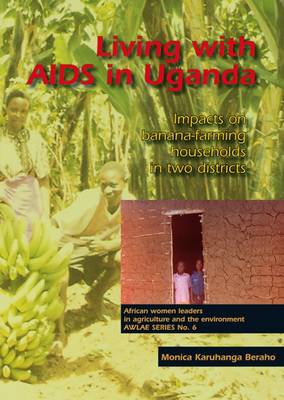This book was originally written as a doctoral dissertation. The research in this book was carried out among banana-farming households in the districts of Masaka and Kabarole in Uganda. A gendered livelihood approach was used. The research focused on the identification of critical factors that need to be taken into consideration in the development of relevant policies for HIV/AIDS-affected agriculture-based households or those that are at risk. The book shows that HIV/AIDS causes significant negative effects on the lives of those affected. Their resources are affected due to HIV/AIDS-related labour loss and asset-eroding effects and disinvestment in production and child education. While in the overwhelming majority of the affected cases the effects of AIDS are negative and lead to increased impoverishment and vulnerability, for some households HIV/AIDS-related effects are manageable. It is concluded that a household’s socio-economic status and demographic characteristics influence the magnitude of HIV/AIDS-related impacts experienced and capacity to cope. The book also highlights some historically specific social practices, policies, and ideologies that continue to maintain or reproduce distinct forms of inequality, with certain social groups being marginalized and others being privileged. Unless these are redressed, they will continue to aggravate people’s vulnerability regardless of the type of shock that they are exposed to or experience.
- ISBN10 9086860648
- ISBN13 9789086860647
- Publish Date 4 January 2008
- Publish Status Active
- Publish Country NL
- Imprint Wageningen Academic Publishers
- Format Paperback
- Pages 372
- Language English
- URL brill.com/product_id4145048
